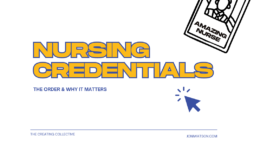Article: Staiger, D. O., Auerbach, D. I., & Buerhaus, P. I. (2012). Registered nurse labor supply and the recession. – Are we in a bubble? New England Journal of Medicine, published online ahead of print March 21, 2012.
Big Idea: This is a perspective article that includes original research results to back up the authors’ perspectives. The recent recession, once again, bolstered the nursing profession, practically ending the ten previous years’ nursing shortage gap. As the recession improves, though, will nurses exit the workforce?
SurveySays!: Staiger, Auerbach, and Buerhaus examine nursing employment rates from 2005 to 2010 in comparison with national unemployment rates. Indeed, as the national unemployment rate rose, the nursing shortage gap closed. Nurses returned to the workforce, perhaps to financially provide for their families. Authors project, though, approximately 118,000 nurses will leave the workforce as the economy recovers and the national unemployment rate drops. However, if the recession further persists, the nursing profession will continue to grow by as much as 227,000 nurses.
Quotable: “The growth in the RN workforce that occurred between 2005 and 2010 was the largest expansion over any 5-year period observed in our data extending back four decades. But much of this surge appears to have been driven by the deep recession” (p. 2).
“Especially in the face of projected shortages by 2015 of both primary care physicians and general surgeons [reference], slower growth in the RN workforce could not come at a worse time. This projected slowdown would occur just when the demand for health care is expected to increase, as an estimated 32 million additional Americans obtain health insurance coverage” (p. 3).
So What?: Despite younger nurses joining the profession in larger quantities than ever before, history is repeating itself at an inopportune time. Authors encourage all to prepare for the post-recession nursing shortage now. Policymakers should particularly be aware as a nursing shortage could greatly impact healthcare reform






suki
March 23, 2012 6:48 pmWe have way too many nurses unable to find employment. The hospitals are changing the role of nurses in a negative way. Nurses are not staying at the bedside because it is horrible. The administration does not listen to the nurses. They want the nurse to do a job that is impossible. The falsification of a pretend “nursing shortage” only benefits the for profit schools and the CEO’s pockets. Because they can lure more young people into believing there will be jobs. It is all a joke.